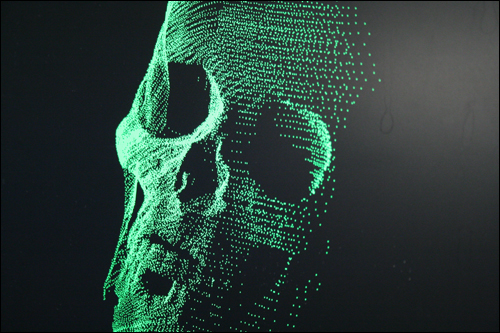
Digitally scanned image of a skull.(FBI)
Flaws in online security and the increased
use of web-connected health devices means that the first "cyber murder"
is only a matter of time, according to a report by Interpol.
The report warns that police forensics teams are currently ill-equipped to deal with the threat, and will have to "adapt and grow" as the so-called Internet of Things sees devices including heart monitoring devices, homes and cars, functioning through online systems through internet connections.
"The Internet of Things represents a whole new attack vector that we believe criminals will already be looking for ways to exploit," according to the Europol threat assessment.
The threat assessment published last week cites a report by US security firm IID, which predicts that the first murder using a hacked internet-connected device will take place by the end of the year.
A series of high-profile cases have highlighted the vulnerability of web-connected devices to sabotage by hackers.
Internet's health risk
Computer expert Barnaby Jack was scheduled to give a presentation on how pacemakers were vulnerable to hacking when he died last year.
He had already successfully demonstrated that he could remotely hack insulin pumps.
Echoing hit TV series Homeland, in which the US vice-president is assassinated with a hacked defibrillator, ex-US vice-president Dick Cheney recently revealed that the wireless function on his defibrillator had been disabled to avoid a similar attack.
The Interpol report says that face and voice
recognition technology used to protect the devices was open to
exploitation by criminals, and warned that criminals could use wireless
systems to lock people out of their homes or vehicles, and demand payment for access to be restored.
"The Internet of Things is inevitable. We must expect a rapidly growing
number of devices to be rendered 'smart' and thence to become
interconnected," warns the report. "Unfortunately, we feel that it is
equally inevitable that many of these devices will leave vulnerabilities via which access to networks can be gained by criminals."
No comments:
Post a Comment